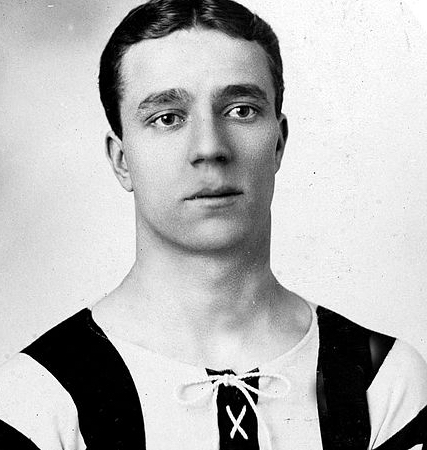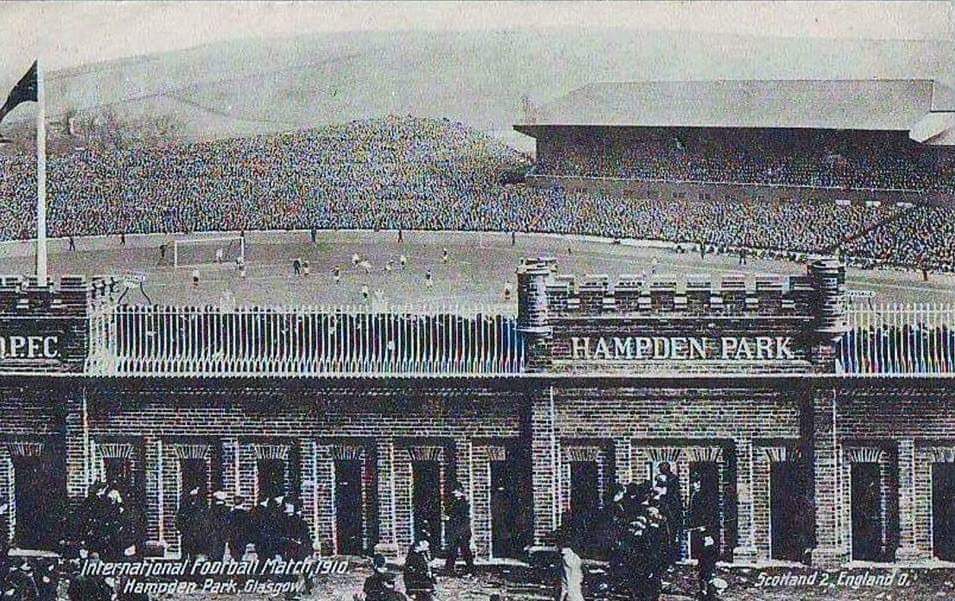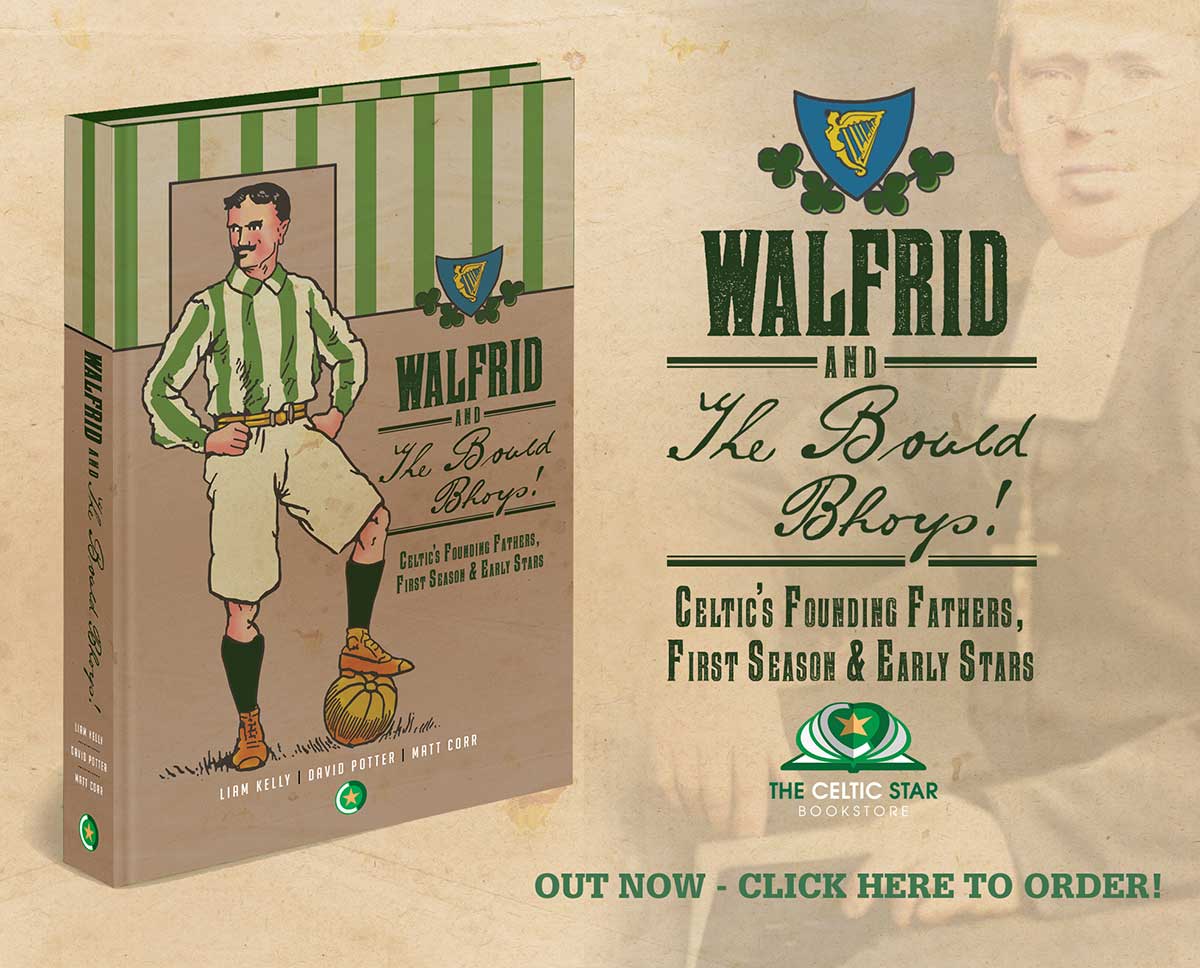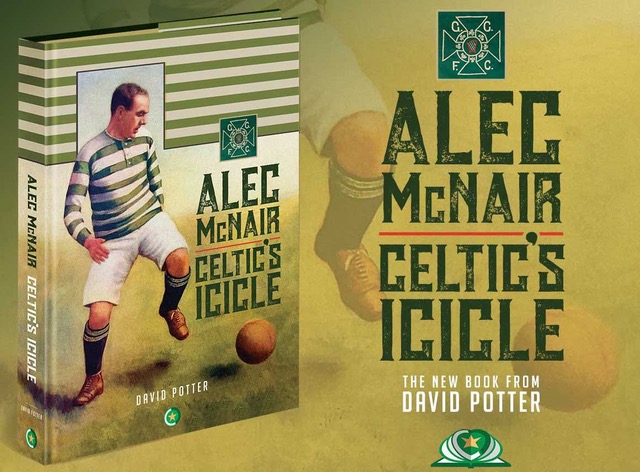Not that I really have to apologise to readers of The Celtic Star, but technically this series should read “When Celtic (with the help of friends) beat England”. There are times when Celtic have played a disproportionately large part in Scotland’s triumph over The Auld Enemy. Not that I am in any way decrying or downplaying the parts played by players of other clubs, of course! Even Rangers players! Good, heavens, no!
Nevertheless the Scotland forward line which took the field at Hampden on April 2 1910 was Bennett, McMenemy, Quinn, Higgins and Templeton. The only real outsider there was Sandy Higgins of Newcastle United (and he was a Celtic supporter).

The others were all Celts. McMenemy and Quinn spoke for themselves, Bobby Templeton had played a season or two with Celtic but was now with Kilmarnock and on the right wing was Alec Bennett, a man who was now questioning whether he had made the right decision in 1908 when, at the height of his powers, he was persuaded to join the somewhat under-performing Rangers. Celtic had just won their sixth League in a row, so you could hardly say they missed him, but he was a great player whose “sweetness was wasted on the desert air” at Ibrox, and today he had the opportunity to team up with his old friends, the two Jimmies – Quinn and McMenemy.

Scotland’s team was Brownlie, Law and Hay; Aitken, Thomson and McWilliam; Bennett, McMenemy, Quinn, Higgins and Templeton.
Three from Celtic, two from Newcastle United, two from Rangers, and one each from Third Lanark, Leicester Fosse, Sunderland and Kilmarnock. England’s team was redoubtable with legends like Bob Crompton and Jesse “Peerless” Pennington, Harry Makepeace, but the man that everyone in the 106,205 crowd talked about was the shy miner from Croy. English fans were said to make the trip just to see this man whose name appeared more often in conversations than King Edward VIII or Lloyd George or Marie Lloyd.

Loads of England fans arrived, but they were overwhelmed by the passion of the Scots who were singing songs of Robbie Burns, Harry Lauder and the music hall favourite “Clementine”, except the words ran along the lines of “Oh my darling, Jimmy Quinn!” Both teams arrived at Hampden in horse-drawn charabancs with an escort of Glasgow’s mounted police, as the crowd strained to catch a glance at “Jeemie”. Not for the first nor last time, people remarked that he looked “just like an ordinary man”.
He was less ordinary on the field, though. England started brighter, their fans upbeat after being impressed by the pipes and drums of the Argyll and Sutherland Highlanders. But it was Scotland who scored first. Templeton made ground down the wing, crossed to Quinn who drew the goalkeeper out and managed to flick the ball to the unmarked McMenemy who took his time and lobbed the ball gently into the net “to loud and deafening cheers”. Not long after that, Bennett sent over a ball to Quinn who simply charged into the net with the ball at his feet, brushing aside the challenges of Pennington and Hardy. Once again, noise rent the air but this time it was “flags, handkerchiefs, whistles and bells” all over Hampden and for some distance around, for everyone knew by the noise that Scotland had scored.
2-0 at half-time and it should have been more in the second half, but for some brilliant goalkeeping from Sam Hardy in the Liverpool goal. 2-0 it stayed before an exultant Hampden Park. The Press, even the English Press, had no doubt who won the game for Scotland. “Is there a better centre forward in the kingdom that James Quinn” the London Evening Dispatch demands to know “If so, who is he?”
While the Daily Mail states categorically “In Quinn, they (Scotland) have undeniably the finest centre in the four countries – strong, resolute and dashing, sometimes opening the game up for his wings and on other occasions going through by himself, but nearly always doing the best thing possible in the circumstances” And that was before we started on the adulation of the Scottish Press!

About a month after this game, King Edward VII died after a lifetime of debauchery and failing to live up to his mother’s expectations. (Remind you of anyone?) His death was announced in newspapers, and sometimes the advertising bills read “Great Man Dead”. Many a Celtic or Scotland supporter bought a newspaper and discovered with relief that that the “Great Man” was the King. “Oh, for a horrible meenit, I thocht it micht have been Jimmie…”
David Potter
It’s Father’s Day on Sunday – why not order one of the remaining copies of Walfrid & The Bould Bhoys? This beautifully presented hardback book will make a wonderful gift. Also worth noting that we only have around a dozen copies remaining before it’s a complete sell-out. Click below to order…
We also have signed copies of (Proper) Invincible by Matt Corr and we’ll also be receiving our second print run of David Potter’s new book Alec McNair – Celtic’s Icicle on Friday. We will post out first class but it’s a bit tight to recommend this for Father’s Day at this stage. Definitely worth ordering though!





